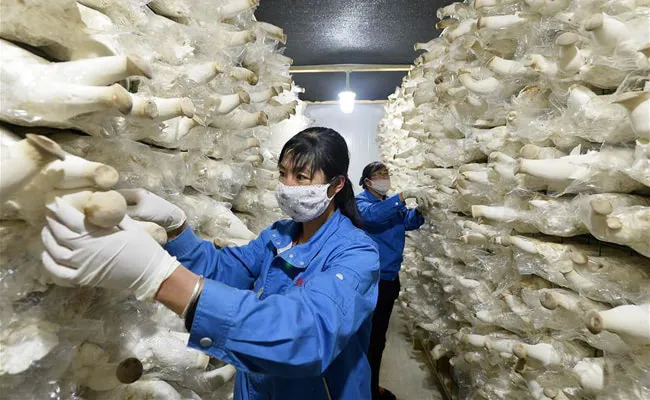Drop your baskets and forget all you know about mushroom picking. Juncao (literally translated “fungus grass”), developed by Lin Zhanxi, a professor at China’s Fujian Agriculture and Forestry University, now makes it possible to grow edible and medicinal fungi on chopped grass or herbal plants
First developed in the mid-80’s, after more than 30 years of continued development, Juncao technology now offers farmers the possibility to cultivate up to 55 kinds of mushrooms using a wide range of herbaceous plants. It completely reassesses the traditional approaches to mushroom farming and provides a viable alternative to the extensive use of wood logs and sawdust, which comes at a heavy environmental price: large-scale woodcutting.
China’s 400 million hectares of grassland amount to nearly three times the surface of its arable land. By using just three percent of the Chinese grassland, Zhanxi argues, the Juncao industry could produce more than 135 million tons of mushrooms and create millions of jobs, thus proving to be an efficient tool in poverty alleviation and rural development.
Due to its wide adaptability, fast growth, high capacity in retaining water and soil, Juncao grass could also be applied to ecological management of all sorts, such as soil erosion control, desertification prevention and ecological rehabilitation of abandoned mining sites. Moreover, Juncao pastures are a suitable forage for livestock and poultry feed. Last but not least, this multipurpose one-size-fits-all high-tech grass comes at a reasonable price.
Last May, the Juncao Technology Project was officially launched at the UN headquarters, with the aim of fighting poverty and malnutrition but also prevent soil and water loss in developing countries. In short, Juncao is “grass-roots” in every sense of the word.
Source: Xinhuanet


Comments (0)
Share your thoughts and join the technology debate!
No comments yet
Be the first to share your thoughts!